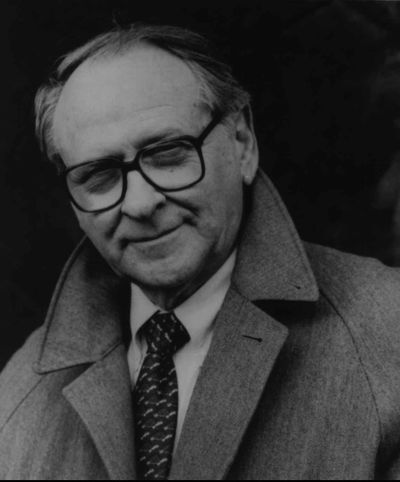Celebrated columnist William Safire dies

WASHINGTON – William Safire, a Pulitzer Prize-winning columnist and language maven for the New York Times, whose penchant for the barbed and memorable phrase first manifested itself in speeches he wrote for the Nixon White House, died Sunday in Rockville, Md. A longtime friend and former colleague, Martin Tolchin, said Safire had pancreatic cancer. He was 79.
For more than three decades, Safire wrote twice weekly as the resident conservative columnist on the Times op-ed page. He also wrote the popular “On Language” column in the New York Times Sunday Magazine, exploring grammar, usage and the origin of words. The column led to the publication of more than a dozen books about words and language.
He arrived at the Times in 1973, fresh from his stint as a senior White House speechwriter for President Richard Nixon. His catchy turns of phrase often outlived the context in which they were delivered. Perhaps the most memorable was the acidic and alliterative putdown he crafted for Vice President Spiro Agnew to describe those in the press who opposed the Vietnam War. They were, Agnew said, “nattering nabobs of negativism.”
Safire acknowledged in his inaugural column that his new role as a columnist sparked dismay among erstwhile colleagues.
“When word spread like cooling lava through the Nixon Administration that I was to become a columnist for the New York Times,” he wrote on April 15, 1973, “speechwriters who stayed behind wanted to know: ‘Will you continue to stand up for the President, the work ethic and the Nixon doctrine, or will you sell out to the elitist establishment and become a darling of the Georgetown cocktail party set?’ ”
Safire, who puckishly assured his readers that he never ducked the tough questions, said that his answer to both questions was “yes and no.” He encouraged his readers “to watch this space for further development.”
Witty, playful and always provocative, Safire quickly developed a voice. In the words of William Greider, writing in the Washington Post in 1977, he was “a gaudy flame on display in a gray museum.” Although his early columns defended Nixon against charges arising from Watergate, Safire became less ardent after he learned about the White House taping system.
Safire won the Pulitzer Prize for commentary in 1978 for his columns on the financial affairs of Carter White House budget director Bert Lance, who was accused of irregular banking practices in Georgia. Lance resigned but was acquitted on all counts by a federal jury. He and Safire later became friends.
He was born William L. Safir (the “e” was added later) in New York City on Dec. 17, 1929. At age 19, he became a researcher and writer for New York Herald Tribune columnist Tex McCrary. He interviewed socialites, politicians and celebrities, including Mae West.
After working as a roving correspondent in Europe and the Middle East for WNBC radio and television, he was inducted into the Army, for which he did public relations work. He made a name for himself by persuading NBC to televise nationally a Fourth of July ceremony awarding military decorations. He also arranged to have the ceremony at the foot of the Statue of Liberty, with a Navy aircraft carrier cruising in the background.
At the American National Exhibition in Moscow in 1959, Safire was able to corral then-Vice President Nixon and Soviet leader Nikita Khrushchev in the kitchen showroom of the “typical American house,” where Nixon provoked the famous “kitchen debate” on the relative merits of capitalism and communism.
An Associated Press photographer, blocked by the crowd, tossed his camera to Safire over the heads of astonished Soviet guards, and the publicist snapped the famous photo of the two men engaged in their debate. The photo would be used to buttress Nixon’s reputation as a tough “cold warrior” in his unsuccessful 1960 presidential campaign against John F. Kennedy, the Democratic nominee that year.
In the wake of the 1964 presidential election, Safire began to look toward the 1968 campaign, and he volunteered as an unpaid speechwriter on behalf of Nixon. Nixon assigned Safire to help Patrick Buchanan write Nixon’s syndicated newspaper column.
For the 1968 campaign, Safire wrote Nixon’s “new alignment” speech in which the candidate affirmed his belief that “the Republicans, the new liberals, the new South, (and) the black militants are talking the same language.” After Nixon’s election on Nov. 5, 1968, he wrote the president-elect’s victory speech, which included the major objectives of the new administration and declared the president’s determination “to bring the American people together.”
In February 1969, he moved into the White House as special assistant to the president, working under former Time executive editor James Keogh and as part of a speechwriting team that included Buchanan and Raymond Price. In a 1969 article, the New York Times described Safire as “the word factory’s resident pro for zingers and snappers.”